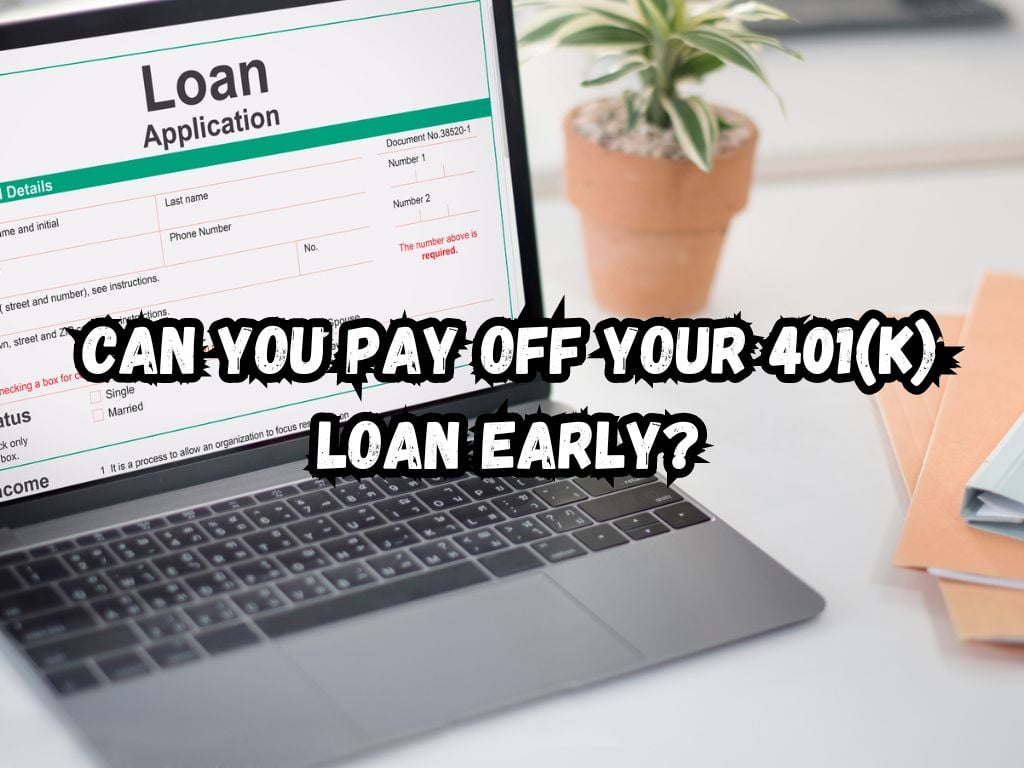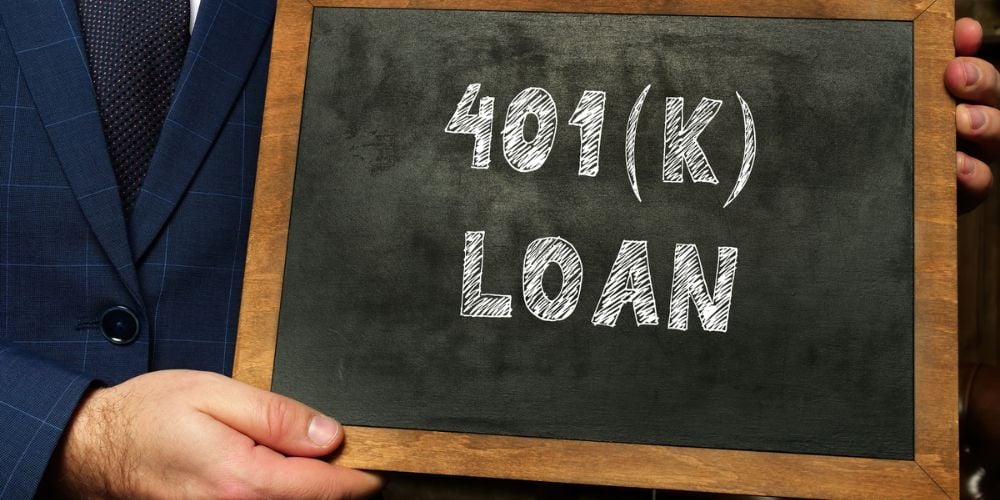The sphere of personal finance comes with many decisions, and when it comes to managing a 401(k) loan, it’s no exception. Many individuals who’ve taken such loans frequently question the merits of early repayment.
They ponder whether doing so is feasible, and if yes, what implications would such a decision bear on their overall financial health.
Thus, this comprehensive guide aims to demystify the complexities attached to early repayment of 401(k) loans, guiding you to make a financially informed decision.
Can You Pay Off Your 401(k) Loan Early?
Yes, you can pay off your 401(k) loan early without facing any prepayment penalties. Most plans allow for early repayment, and doing so can be financially beneficial as it reduces the amount of interest you pay over time.
To proceed, you should contact your plan’s administrator or refer to your loan agreement for specific details on how to make an early payment. Early repayment will directly reduce your loan balance and the interest accrued.
Once the loan is fully repaid, you can resume contributing to your 401(k) and potentially increase your contributions to make up for the time when your investments were not growing as much due to the loan.
Always check your plan’s terms and consult with a financial advisor to understand the implications of early repayment on your financial situation.
Reasons to Consider Paying Off a 401(k) Loan Early
Taking a slight detour from the norms can indeed be adventurous, but is it beneficial when it comes to your 401(k) loan? What could drive one into wrapping up their loan before the scheduled time?
The leading catalyst in most cases is the financial benefits detracted from saving on interest. Though the interest you pay on your loan channels back into your account, early payment can allow freeing up a part of your paycheck. In turn, these funds can start generating compound interest, accelerating your savings growth.
Another aspect that can’t be overlooked includes the psychological benefits. The feeling of eradicating debt before the stipulated time can be empowering. It provides a sense of financial security and could be your entry ticket into aggressive retirement saving.
How to Pay Off Your 401(k) Loan Early
Discussing early 401(k) loan repayment might bring a few questions to your mind. How does one initiate it? Is it as simple as throwing extra cash towards your debt?
Not really. Settling your loan ahead of schedule requires coordination with your plan provider or your human resources department. A streamlined communication ensures the correct allocation and processing of your additional payments.
There have been instances where the additional funds were not applied to the principal but were treated as future payments. Therefore, clearly specifying the purpose of the additional funds is crucial.
Talking about strategies, there isn’t a universally suitable approach. Some prefer a gradual increase in their payment amount over time, while others channelize their sudden monetary gains like tax refunds towards loan repayment.
The growing popularity of these strategies lies in their feasibility; they fit seamlessly into one’s lifestyle without causing severe disruptions.
Potential Roadblocks and How to Overcome Them
Even with a sturdy resolve and a well-devised strategy, roadblocks can appear. Your plan might levy fees for processing extra payments or might not entertain the concept of early repayment at all.
It’s crucial to weigh the potential costs or limitations against the benefits early loan settlement brings to the table.
If your plan is amenable to early repayment without imposing substantial fees, it’s a green signal. But, if penalties are severe, a reconsideration or a consultation with your financial advisor to devise a different plan might be worth your while.
FAQs and Their Answers
What Happens If I Can’t Repay My 401(k) Loan?
Failure to repay your loan can lead to defaults. The unpaid balance is then treated as a taxable distribution. If you’re under 59½, this comes with the additional burden of a 10% early withdrawal penalty alongside the income taxes due.
Will Paying Off My 401(k) Loan Early Affect My Tax?
While early loan repayment has many aspects to it, it doesn’t directly impact your taxes. Since loan repayments aren’t tax-deductible, the tax implications remain unchanged irrespective of your repayment timeline. But, settling your loan earlier propels the funds back into your account sooner, thereby allowing them to resume their tax-deferred growth.
How Does Early Repayment Affect My Credit Score?
401(k) loans, unlike other loans, aren’t listed on your credit report, indicating their neutral effect on your credit score. However, total repayment can contribute positively to your overall financial health, making you a desirable candidate for future lenders.
Alternatives to Early Repayment
While early repayment might sound appealing, it isn’t a universally ideal choice. Comparing it with other investment options can give you an edge.
For example, if you’re burdened with high-interest debt like outstanding credit card balances, it might be worth considering settling them first.
Similarly, if early repayment conflicts with your retirement savings contributions or makes you miss out on employer matching contributions, it’s advisable to do some number crunching. Missing out on free money doesn’t sound too appealing, does it?
Conclusion
An early settlement of your 401(k) loan can indeed be a financially astute move, provided it resonates with your broader financial strategy and retirement savings plan. Before taking the plunge, take a moment to ensure it doesn’t come in the way of addressing higher-priority financial needs.
Remember, the horizon of personal finance brings along multiple routes to reach the end goal. While hastening to free yourself from debt can seem appealing, it’s pivotal to approach this decision with a clear grasp of your overall financial situation and long-term goals.
Aggressive or not, every step should align your present actions with your future aspirations. Always remember, the aim is not just to tread the path but to do it efficiently and successfully.







 Tags:
Tags:










